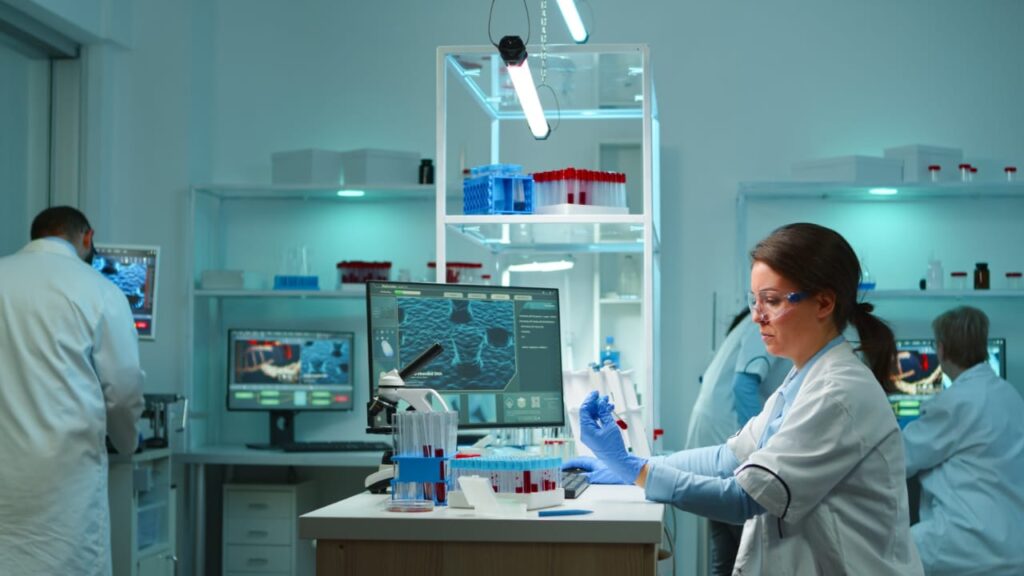
Medical science has always been at the forefront of technological innovation, with laboratory testing serving as a crucial pillar of healthcare. Over the past few decades, laboratory diagnostics have evolved rapidly, driven by advanced technologies that enhance accuracy, speed, and accessibility. These developments are not only transforming how diseases are detected and treated but are also paving the way for a future where personalized medicine becomes the norm.
The Rise of Automation in Laboratory Testing
Automation has revolutionized laboratory testing, significantly reducing human error and increasing efficiency. Traditional manual testing methods required extensive hands-on work, often leading to inconsistencies in results. With automated platforms, laboratories can now process thousands of samples with unparalleled precision. Robotic sample handling, advanced liquid chromatography, and mass spectrometry have become standard tools in modern laboratories, allowing for faster and more reliable diagnoses.
One of the biggest advantages of automation is its ability to handle high-throughput testing, which became particularly evident during the COVID-19 pandemic. Automated systems enabled laboratories worldwide to conduct millions of tests daily, an accomplishment that would have been impossible using manual methods. As artificial intelligence (AI) continues to advance, its integration with automation will further optimize diagnostic workflows, reducing costs and improving patient outcomes.
Artificial Intelligence and Machine Learning in Diagnostics
AI and machine learning are reshaping laboratory diagnostics by enhancing data analysis and interpretation. These technologies can identify patterns in complex biological data that might be overlooked by traditional methods. AI-powered algorithms are being used to analyze medical images, detect anomalies in blood samples, and even predict disease progression based on genetic markers.
One of the most promising applications of AI in laboratory medicine is in pathology. AI-driven software can analyze pathology slides with remarkable accuracy, assisting pathologists in identifying cancerous cells earlier than ever before. This not only speeds up diagnosis but also ensures more precise treatment planning, ultimately improving patient survival rates.
Additionally, AI is being used to refine molecular diagnostics, particularly in the field of genomics. By analyzing vast amounts of genetic data, AI can help identify mutations linked to hereditary diseases, allowing for early intervention and preventive care. As machine learning models continue to improve, their integration into everyday laboratory testing will only grow stronger.
The Impact of Quantum Computing on Laboratory Medicine
Quantum computing, a groundbreaking field that promises unprecedented computational power, is beginning to influence laboratory medicine. Unlike classical computers, which process data in binary, quantum computers use quantum bits (qubits) to perform complex calculations at speeds previously thought impossible. This has significant implications for drug discovery, genetic research, and disease modeling.
By leveraging innovative quantum computing solutions, researchers can analyze massive datasets with unparalleled efficiency. This means that laboratory tests requiring extensive computational power, such as protein folding simulations or drug interaction modeling, can be conducted in minutes instead of years. As quantum computing technology matures, its impact on laboratory testing will become even more profound, enabling discoveries that were once beyond our reach.
The Emergence of Lab-on-a-Chip Technology
Lab-on-a-chip (LOC) technology is another major advancement in laboratory testing. These miniaturized devices integrate multiple laboratory functions onto a single chip, allowing for rapid and highly sensitive analysis of biological samples. LOC technology is particularly useful for point-of-care testing, where quick diagnostic results are essential.
One of the most exciting applications of LOC technology is in infectious disease detection. With a simple drop of blood or saliva, these microfluidic devices can detect pathogens within minutes. This has the potential to revolutionize disease management, particularly in remote areas with limited access to traditional laboratory facilities.
Moreover, LOC devices are playing a crucial role in personalized medicine. By analyzing an individual’s biomarkers, these compact systems can provide real-time feedback on how a patient is responding to treatment, enabling tailored therapeutic strategies. As research in this field progresses, lab-on-a-chip technology is expected to become a staple in everyday healthcare.
The Role of CRISPR in Rapid Diagnostics
CRISPR, the revolutionary gene-editing technology, is now being adapted for diagnostic purposes. Originally designed for genetic modification, CRISPR-based tests can rapidly identify pathogens, genetic mutations, and even cancer biomarkers with remarkable accuracy.
One of the most notable applications of CRISPR in laboratory medicine is its use in detecting infectious diseases. Unlike traditional polymerase chain reaction (PCR) tests, which require specialized equipment, CRISPR-based diagnostics can be performed using portable devices, making them ideal for field testing. This has already been demonstrated in the detection of COVID-19, where CRISPR-based tests provided quick and reliable results without the need for expensive lab infrastructure.
Beyond infectious diseases, CRISPR diagnostics are being explored for early cancer detection. By identifying cancer-specific genetic markers in blood samples, these tests could enable non-invasive screenings, leading to earlier diagnoses and improved treatment outcomes. As the technology matures, CRISPR is set to become a game-changer in laboratory testing.
The Future of Laboratory Testing
The rapid pace of technological innovation is continuously reshaping the landscape of laboratory testing. From AI-driven diagnostics and quantum computing to lab-on-a-chip devices and CRISPR-based tests, these advancements are making laboratory medicine faster, more accurate, and more accessible than ever before.
As these technologies continue to evolve, their integration into routine medical practice will lead to earlier disease detection, more precise treatments, and improved patient care. The future of laboratory testing is not just about speed and efficiency but also about enabling a new era of personalized medicine, where treatments are tailored to individual patients based on their unique genetic and molecular profiles.
With these breakthroughs on the horizon, laboratory medicine is poised to enter a new golden age—one where innovation and science work hand in hand to redefine the future of healthcare.
